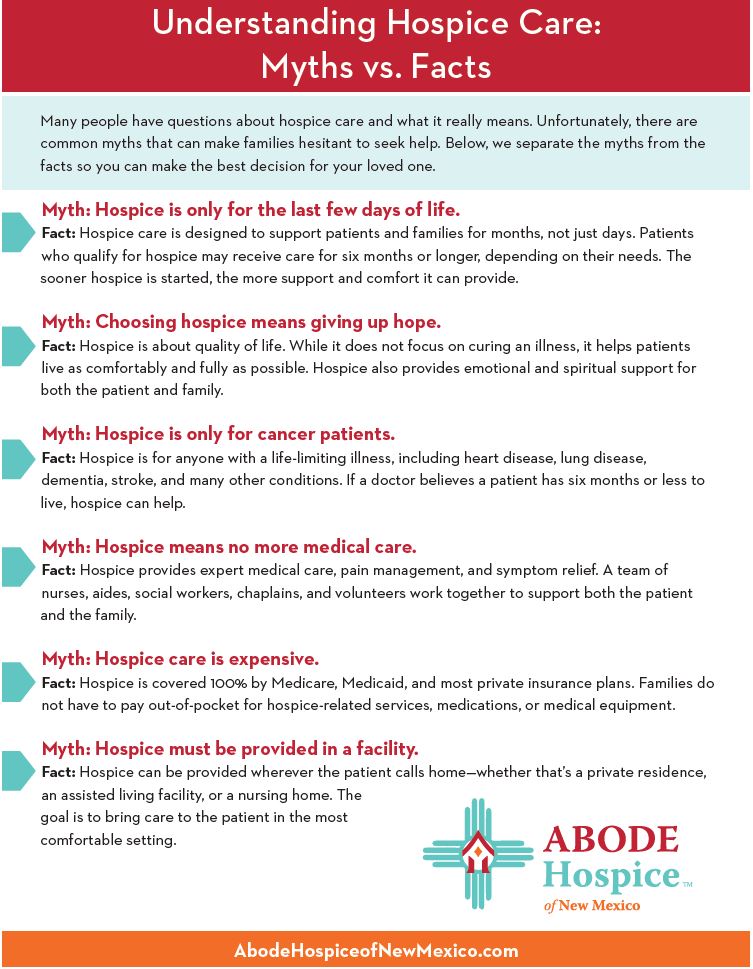Many people have questions about hospice care and what it really means. Unfortunately, there are common myths that can make families hesitant to seek help. Below we separate the myths from the facts so you can make the best decision for your loved one.
Myth: Hospice is only for the last few days of life.
Fact: Hospice care is designed to support patients and families for months, not just days. Patients who qualify for hospice may receive care for six months or longer, depending on their needs. The sooner hospice is started, the more support and comfort it can provide.
Myth: Choosing hospice means giving up hope.
Fact: Hospice is about quality of life. While it does not focus on curing an illness, it helps patients live as comfortably and fully as possible. Hospice also provides emotional and spiritual support for both the patient and family.
Myth: Hospice is only for cancer patients.
Fact: Hospice is for anyone with a life-limiting illness, including heart disease, lung disease, dementia, stroke, and many other conditions. If a doctor believes a patient has six months or less to live, hospice can help.
Myth: Hospice means no more medical care.
Fact: Hospice provides expert medical care, pain management, and symptom relief. A team of nurses, aides, social workers, chaplains, and volunteers work together to support both the patient and the family.
Myth: Hospice care is expensive.
Fact: Hospice is covered 100% by Medicare, Medicaid, and most private insurance plans. Families do not have to pay out-of-pocket for hospice-related services, medications, or medical equipment.
Myth: Hospice must be provided in a facility.
Fact: Hospice can be provided wherever the patient calls home- whether that’s a private residence, an assisted living facility, or a nursing home. The goal is to bring care to the patient in the most comfortable setting.
Understanding the Differences: Home Health, Palliative Care, and Hospice
Home Health
- For patients recovering from an illness, injury, or surgery.
- Focuses on improving health and independence.
- Requires a doctor’s order and is covered by Medicare and insurance for those who qualify.
- Includes skilled nursing, physical therapy, speech therapy, and other medical services.
- The goal is recovery and rehabilitation.
Palliative Care
- For patients living with a serious illness at any stage.
- Can be provided alongside curative treatments.
- Focuses on symptom relief, pain management, and improving quality of life.
- Typically provided in a hospital clinic, or at home, depending on the patient’s needs.
- May be covered by Medicare, Medicaid, and private insurances, but coverage varies.
Hospice Care
- For patients with a terminal illness who are no longer seeking curative treatment.
- Focuses on comfort, dignity, and quality of life.
- Provides physical, emotional, and spiritual support.
- Available wherever the patient calls home.
- Covered 100% by Medicare, Medicaid, and most private insurance plans.
If you have questions about which type of care is right for your loved one, we are here to help. Making an informed decision ensures that your loved one receives the best possible support during this time.
Click the buttons below to download a copy of this fact sheet.




